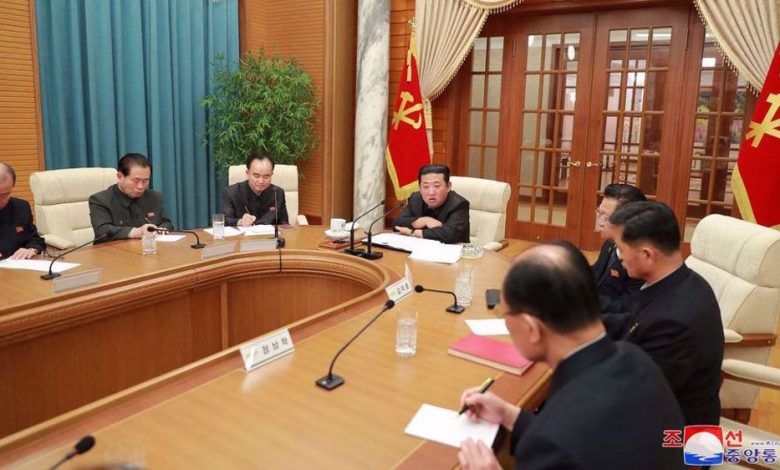North Korea to resume nuclear and long-range missile tests
North Korea says it may consider resuming “all temporarily suspended” nuclear and long-range weapons tests to boost its defenses against Washington’s “military threats,” amid growing tensions on the Korean Peninsula and renewed US sanctions against Pyongyang.

North Korea’s official news agency KCNA reported on Thursday that the decision was made after North Korean leader Kim Jong-un convened a meeting of the powerful politburo of the ruling Workers’ Party a day earlier to discuss countermeasures to US’s “hostile policy” against the country.
“The hostile policy and military threats of the United States have reached a danger line that cannot be overlooked anymore,” it said, acknowledging the need to “make more thorough preparation for a long-term confrontation with the US imperialists.”
Kim instructed officials to bolster ways to “efficiently control the hostile moves of the US” and reconsider “trust-building measures” that the country has taken on its own initiative as well as a re-examination of whether to restart “all temporally-suspended activities.”
The decision is a possible reference to Pyongyang’s self-imposed moratorium on testing nuclear warheads and long-range intercontinental ballistic missiles (ICBMs), which has been in place since 2017.
North Korea’s warning came hours before the United Nations Security Council was due to convene a closed-door meeting to discuss the recent missile tests, at the request of the United States and several other countries.
North Korea has ramped up its missile tests during the month of January. On Monday, it reportedly carried out a new weapons test, firing two “unidentified projectiles” into the sea off its eastern coast.
In response to Pyongyang’s new missile test, the United States last week imposed new sanctions on the country, which Pyongyang described as an act of “provocation.” Washington also called on the United Nations Security Council to blacklist several North Korean individuals and entities.
The North has defended its latest missile tests as a legitimate right to self-defense.
Meanwhile, the Unification Ministry handling inter-Korean ties has warned of further escalation, saying the peninsula should not go back to the confrontational past, and dialog and diplomacy are the only way forward.
Yang Moo-jin, a professor at the University of North Korean Studies in Seoul, has warned that, “It’s possible that the situation could go back to the vicious cycle of provocations and sanctions we saw in 2017.”
Daryl Kimball, executive director of the Arms Control Association in Washington, has also said the US needs to lead more concerted, high-level international efforts to restart negotiations on step-for-step actions toward peace and denuclearization.
“The North Korean nuclear and missile problem has not disappeared and will only grow worse in the absence of active, serious diplomacy,” he said.
Choi Yong-hwan from Seoul’s Institute for National Security Strategy (INSS) said, “Considering North Korea’s position and the situation on the Korean Peninsula in 2022, North Korea’s new weapon test will last for a while.”
Duyeon Kim, adjunct senior fellow at the Center for a New American Security, said she is not surprised by North Korea’s recent move, adding Pyongyang had already revealed goals to develop and test new ICBMs among other high-tech weapons as part of its five-year plan.
“It doesn’t matter what the US does or does not do… Pyongyang is squarely focused on meeting its nuclear weapons milestones because of its military imperative to do so.”
Pyongyang is under harsh UN sanctions for its missile and nuclear activities.
The administration of US President Joe Biden imposed its first sanctions last Wednesday following the latest series of North Korean missile launches, alleging that the North has refused to respond to its appeals for talks.
Pyongyang says it is open to talks, but only if the United States and others dropped “hostile policies” such as harsh sanctions and joint military drills off the Korean Peninsula.
North Korea also maintains that the United States is intentionally escalating the situation by imposing new sanctions on the country.







